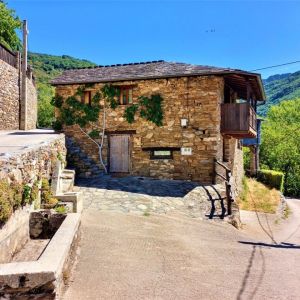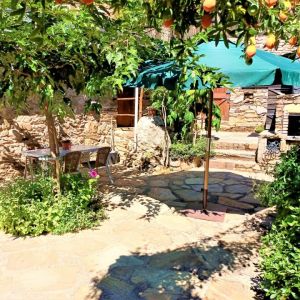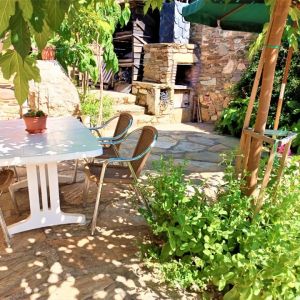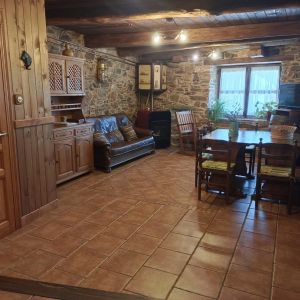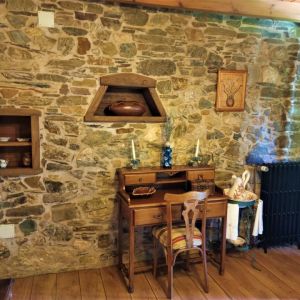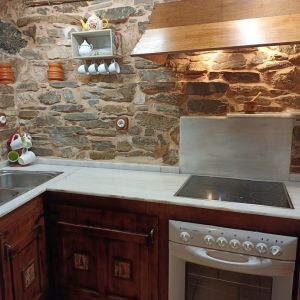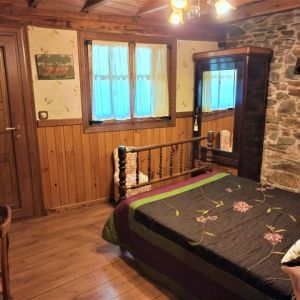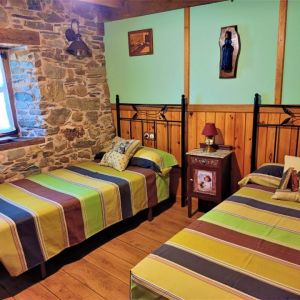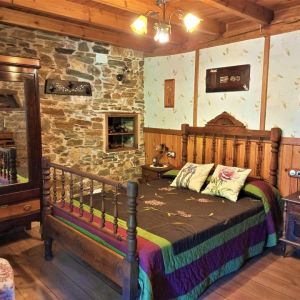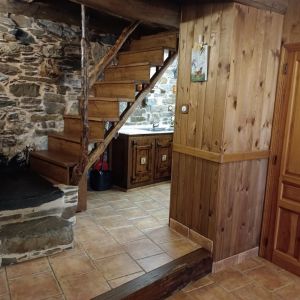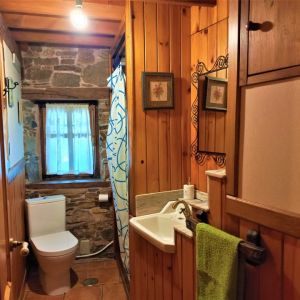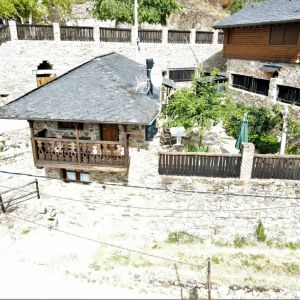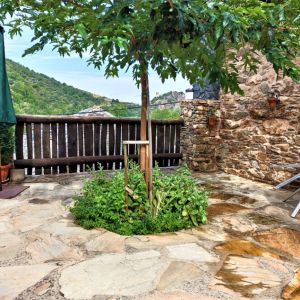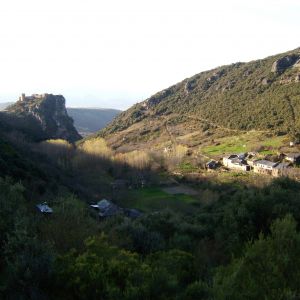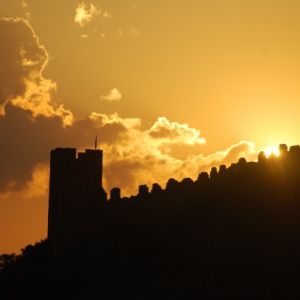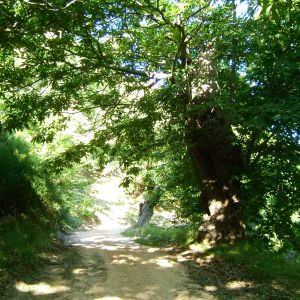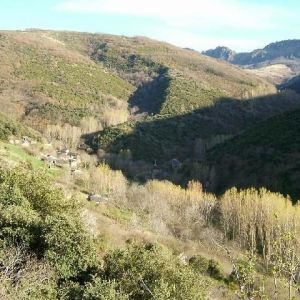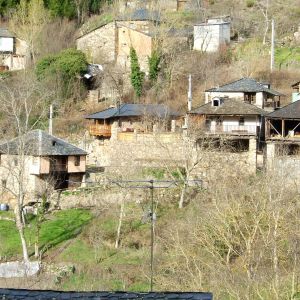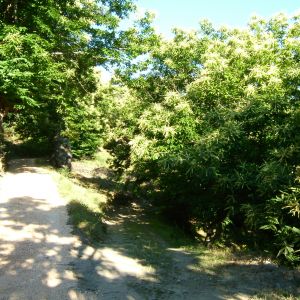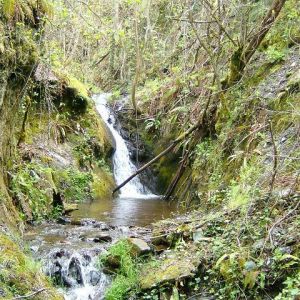Info
Casa Rural Cornatel Bierzo's typical house located in Villavieja, belonging to Priaranza del Bierzo, on winter St. James' Way. 15 km from Ponferrada (León), halfway between Ponferrada and Las Médulas, a World Heritage Site since 1997.
Originally the ground floor was used as a winery. It currently consists of living room with wood-burning stove, toilet and kitchen.
On the upper floor are the two bedrooms - one double with two single beds and one double -, a bathroom, and an outdoor...
Casa Rural Cornatel Bierzo's typical house located in Villavieja, belonging to Priaranza del Bierzo, on winter St. James' Way. 15 km from Ponferrada (León), halfway between Ponferrada and Las Médulas, a World Heritage Site since 1997.
Originally the ground floor was used as a winery. It currently consists of living room with wood-burning stove, toilet and kitchen.
On the upper floor are the two bedrooms - one double with two single beds and one double -, a bathroom, and an outdoor corridor with excellent views of Cornatel Castle and Peñas de Ferradillo.
It has heating, water supply and electricity, and fully-equipped bedrooms, bathrooms and kitchen. It also features a patio with barbecue.
The surroundings are ideal for hiking through centennial forests of chestnut trees, oaks.
![]() Pet friendly
Pet friendly
![]() Near a river
Near a river
![]() Patio
Patio
![]() DVD player
DVD player
![]() Stereo
Stereo
![]() Built-up area
Built-up area
![]() TV
TV
![]() Fireplace
Fireplace
![]() Terrace
Terrace
![]() BBQ
BBQ
![]() Garden furniture
Garden furniture
![]() Garden
Garden
![]() Heating
Heating
![]() Hairdryer
Hairdryer
Environment & Activities
Location:
• Las Médulas: Declared a World Heritage Site in 1997, just 8 km away. Extremely beautiful remains of the largest gold mine exploited by the Romans. Gold was extracted by using the force of water from the nearby mountains, through a network of channels and stored near the farm.
As a result of this activity, Carucedo lake was created, a great place to swim in summer.
• Santiago de Peñalba: Its church is a jewel of Moorish Spanish. It features the gateway formed by a double horseshoe arch...
• Las Médulas: Declared a World Heritage Site in 1997, just 8 km away. Extremely beautiful remains of the largest gold mine exploited by the Romans. Gold was extracted by using the force of water from the nearby mountains, through a network of channels and stored near the farm.
As a result of this activity, Carucedo lake was created, a great place to swim in summer.
• Santiago de Peñalba: Its church is a jewel of Moorish Spanish. It features the gateway formed by a double horseshoe arch supported by three marble columns. The interior is divided into two parts by another great horseshoe arch. A rock wall leads into the Valley of Silence.
It also features Cueva de San Genadio, where old Hermits used to find shelter.
• Ponferrada Castle: Known as the Castle of the Templar Knights. Back in 1178, Ponferrada becomes dependent on the order of the Temple. The Templars settle in this fort that was originally a fortress, and later a Roman town.
To defend the road to Santiago the extended and improved, being finished in 1282.
• Cornatel Castle: Over nine-century-old fortress. The Templar Knights owned it almost for a century until they got dissolved in the early fourteenth century. In mid-fifteenth century it reaches its peak. Partially restored and can be visited.
• Compludo Ironworks: Founded by San Francisco in the seventh century and declared a national monument in 1968. Still working.
• Carracedo Monastery: Declared a national monument in 1929.
• Montes Monastery. In Montes Monastery ruins you can still explore different styles and times - the Romanesque of some of its capitals, Romanesque tower, the church facade and the cloister ruins.
![]() Bike riding
Bike riding
![]() Multisports
Multisports
![]() Paintball
Paintball
![]() Quads
Quads
![]() Horse trails
Horse trails
![]() Hiking
Hiking
![]() Board games
Board games
![]() Water sports
Water sports
![]() Horse riding
Horse riding
![]() 4x4 Routes
4x4 Routes
![]() Fishing
Fishing
![]() Mountaineering
Mountaineering

